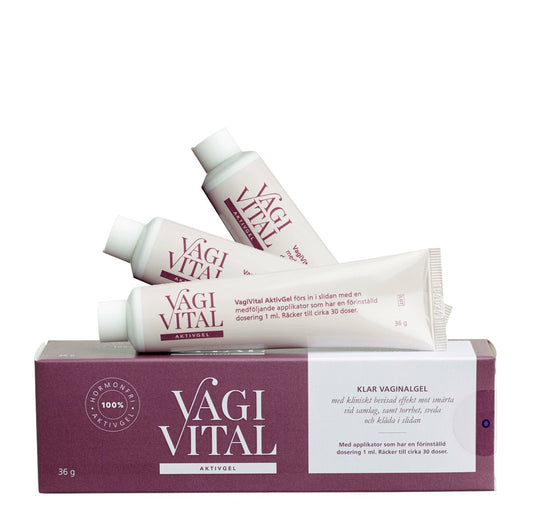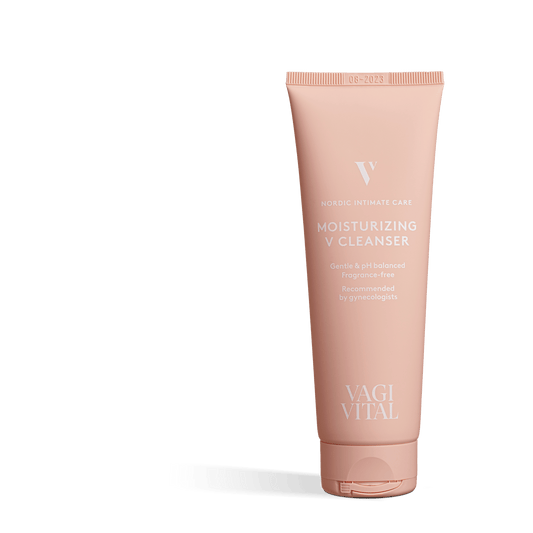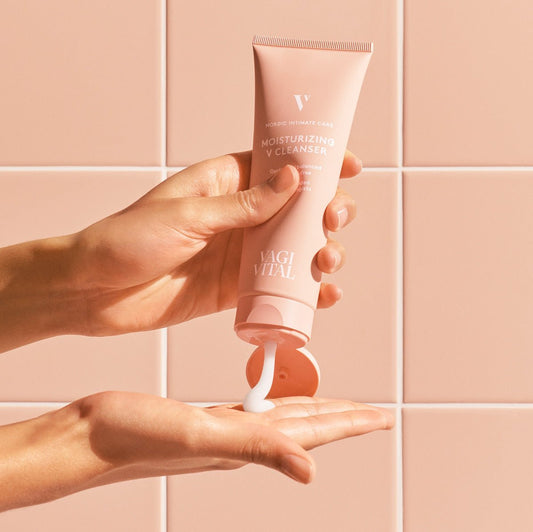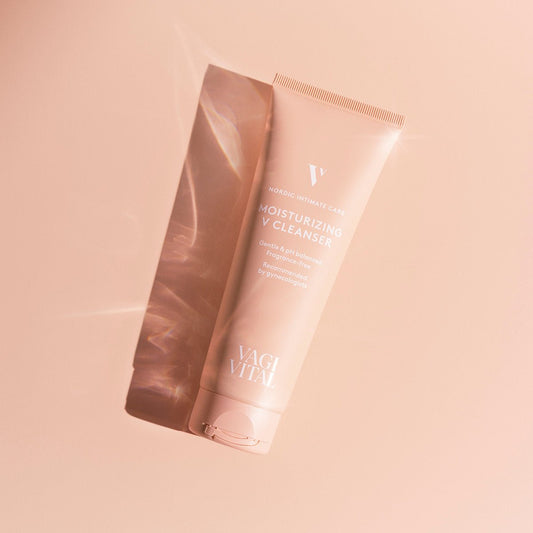Menopause and sleep
I lie in bed long after midnight waiting for my 18-year-old son to come home from festivities. My heart beats a little calmer when I hear the key in the lock and his footsteps in the hallway. But when he is finally safely home, it is as if my own rest refuses to come. It reminds me of the time when I was breastfeeding my children. Then I was awake almost every hour and it got so bad that I sat nursing in the dim light and googled "sleep deprivation and torture." I laugh at it now, but I remember how close I was to losing my mind from pure exhaustion. Because sleep deprivation is actually used as torture in some countries. I managed to read that. Quite reasonable too, because it can really be horrible! Now it's a different dance. Every night when I go to bed I wonder: Will I slip into a peaceful sleep or lie awake staring at the ceiling? Will I fall asleep immediately or toss and turn for hours? It is so unpredictable. Sometimes I wonder if I am at the beginning of menopause or if it is just my mind's endless thoughts keeping me awake. But I have noticed one thing: there is a clear connection between my sleep and my runs. When I run, I sleep better. It is as if every step on the path clears my head and prepares me for rest. It is a simple but effective insight. Because knowledge and understanding of oneself is perhaps the first and most important step to then be able to make conscious choices to manage both sleep, menopause, and life in general ❤
FIND OUT IF YOU ARE IN PERIMENOPAUSE/MENOPAUSE
VagiVital Menopause FSH test for perimenopause/menopause is designed to provide an indication if you are in perimenopause/menopause by measuring certain hormone levels. It can help you gain a better understanding of the symptoms you are experiencing and assist in deciding on possible next steps, such as seeking professional medical advice or exploring appropriate treatment options. VagiVital Menopause FSH test can be found here!
HORMONAL CHANGES AND THEIR IMPACT ON SLEEP DURING MENOPAUSE
When a woman reaches menopause, the production of both estrogen and progesterone decreases dramatically. This decrease can cause significant disruptions in the sleep cycle. Women may experience difficulty falling asleep, frequent awakenings during the night, and a reduction in deep sleep. The decreased amount of estrogen can lead to shorter REM sleep periods and an increased amount of light sleep, making it easier to wake up and feel less rested in the morning. A study from the National Sleep Foundation highlights the extent of the problem: 61% of postmenopausal women report sleep problems, compared to only 35% before menopause. This shows a direct connection between hormonal changes and sleep disturbances.
ESTROGEN, PROGESTERONE, AND SLEEP
Estrogen and progesterone affect sleep in several ways. Estrogen helps maintain a steady sleep cycle and contributes to deeper sleep stages. Progesterone, on the other hand, has calming properties that can promote falling asleep. When the levels of these hormones decrease during menopause, it can therefore lead to significant changes in sleep quality.
🌺 Estrogen's role in the sleep cycle
Estrogen is not only important for reproduction and sexual health, but it also has a direct impact on sleep. This hormone helps regulate the sleep cycle and ensures that we spend enough time in each sleep phase. Particularly important is its role in promoting deeper sleep stages, which are critical for the body's recovery and repair during the night. A study in the "Journal of Clinical Endocrinology and Metabolism" has shown that estrogen helps maintain REM sleep, a phase of the sleep cycle important for cognitive function and memory.
🌺 Progesterone and its calming effects
Progesterone, often regarded as the "calming hormone," plays an important role in the sleep process. This hormone has natural calming properties and helps facilitate falling asleep. Progesterone acts as a natural counterbalance to the body's stress hormones and helps create a sense of calm and relaxation at bedtime. Research in "Sleep Medicine Reviews" has confirmed that progesterone can act as a mild sleep aid and contributes to more restful sleep.
HOT FLASHES AND NIGHT SWEATS
One of the most significant effects of reduced estrogen production is its impact on the body's ability to regulate temperature. Estrogen affects the hypothalamus, the brain's center for temperature control. When estrogen levels drop, this can lead to temperature fluctuations often manifested as hot flashes and night sweats. A study in the journal "Menopause" found that about 75-85% of women experience hot flashes during menopause. These temperature changes can severely disrupt sleep, cause awakenings during the night, and make it difficult to fall back asleep.
CONSEQUENCES FOR SLEEP QUALITY
The consequence of these hormonal changes is often fragmented sleep, where women wake up repeatedly during the night. This disrupts the natural sleep cycle and reduces the amount of deep sleep, which is crucial for the body's recovery and well-being. It can also lead to a reduced total sleep time and a feeling of not being rested the next day.
ADAPTATION TO LESS SLEEP AFTER MENOPAUSE
An interesting theory emerging from research is that older women may actually be biologically adapted to cope with less sleep. A study published in "Sleep Medicine" suggests that evolutionarily it may have been advantageous for older women to be more alert during the night, possibly to provide protection or care. This theory, while still being investigated, implies that sleep changes after menopause may have a deeper biological basis.
GLOBAL DIFFERENCES IN SLEEP PROBLEMS DURING MENOPAUSE
A study in the "Menopause Journal" compared postmenopausal women in different countries and found that sleep problems were more widespread in Western countries compared to non-Western countries. This may be due to a combination of factors, including cultural attitudes toward menopause, lifestyle and dietary habits, as well as environmental factors. Research on menopause and sleep problems has revealed interesting geographical differences in how women experience these challenges. A detailed look at how different countries and regions handle menopause can give us a deeper understanding of these differences.
WESTERN COUNTRIES - HIGHER PREVALENCE OF SLEEP PROBLEMS
In Western countries, including the USA and large parts of Europe, a higher prevalence of sleep problems among postmenopausal women is reported. This phenomenon has several possible explanations:
🌺 Cultural attitudes
In the Western world, there may be a greater tendency to view menopause as a medical issue rather than a natural part of life. This can lead to more stress and anxiety about menopausal symptoms, including sleep problems.
🌺 Lifestyle
Women in Western countries may have more stressful lifestyles, with higher workloads and less time for relaxation and exercise, which can affect sleep quality.
🌺 Dietary habits
Western diets, which are often rich in processed foods, can also play a role. A poor diet can affect hormone balance and contribute to sleep problems.
Read the blog Menopause and the Skin here!
NON-WESTERN COUNTRIES – LOWER REPORTED SLEEP PROBLEMS
In non-Western countries, including parts of Asia and Africa, a generally lower prevalence of sleep problems among menopausal women is reported.
🌺 Cultural factors
In many non-Western countries, menopause is seen as a more natural and accepted part of aging. This can reduce stress and anxiety associated with the transition period.
🌺 Lifestyle and tradition
Traditional lifestyles, which often involve more physical activity and less stress, as well as the use of traditional medicine and natural remedies, can contribute to better sleep quality.
🌺 Diet
Dietary habits rich in natural foods and less processed products can have a positive impact on hormone balance and thus reduce sleep problems.
POSITIVE ASPECTS OF MENOPAUSE AND SLEEP
Despite the challenges that come with menopause and sleep, there are also positive aspects that should be highlighted. A study in the "Journal of Women's Health" found that many women experience a renewed sense of freedom and independence after menopause, which can contribute to better mental health and thus improved sleep quality. This increased sense of well-being can counteract some of the negative effects of sleep disturbances, which can be a comfort ❤
Read the blog I am a menopause lady here!
SELF-HELP STRATEGIES FOR BETTER SLEEP DURING MENOPAUSE
Research has shown that lifestyle changes can have a positive effect on sleep. A study from Cleveland Clinic highlights the importance of avoiding caffeine and alcohol, as well as regularly engaging in physical activity. These measures can help improve sleep and reduce the frequency of hot flashes. For women navigating menopause, sleep challenges can be a big part of daily life. But there are several strategies that can help improve sleep quality. However, it is important to remember that every woman is unique and it may take some experimenting to find what works best for you ❤
SIX TIPS FOR BETTER SLEEP DURING MENOPAUSE
🌺 Regular exercise
Regular physical activity can help improve sleep quality. Exercise not only acts as stress relief but can also help regulate body temperature, which is especially useful for women experiencing hot flashes.
🌺 Relaxing evening routines
Create a relaxing routine before bedtime. This can include reading a book, meditating, taking a warm bath, or listening to calm music. These activities can signal to your body that it's time to wind down.
🌺 Limit caffeine and alcohol
Caffeine and alcohol, especially in the afternoon and evening, can disrupt the sleep cycle. Reducing or eliminating these can make a big difference in your ability to fall asleep and stay asleep.
🌺 Sleep routines
Have regular sleep times and try to maintain a consistent sleep schedule. Going to bed and getting up at the same time every day helps regulate the body's internal clock. Make sure your bedroom is also dark, quiet, and cool. Use comfortable bedding and maybe consider a fan if you tend to get warm at night.
🌺 Eating habits
A well-balanced diet rich in fruits, vegetables, whole grains, and lean protein can help stabilize your body and improve your sleep.
🌺 Manage stress
Effective stress management is crucial. This can include mindfulness, yoga, deep breathing exercises, or talking to a therapist. Today, there are plenty of apps that can help along the way.
🌺 Avoid long naps
Even though it can be tempting to take long naps, especially after a bad night's sleep, this can make it harder to fall asleep in the evening.
To go directly to our shop click here!
I wish you a really good night's sleep & Stay Pussytive ❤
/Fanny
Recommended products for you
- Choosing a selection results in a full page refresh.
- Opens in a new window.













